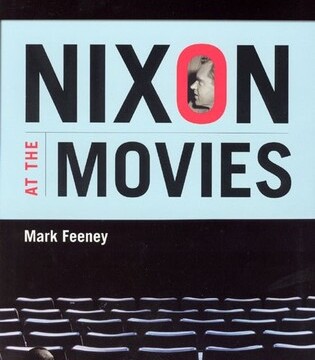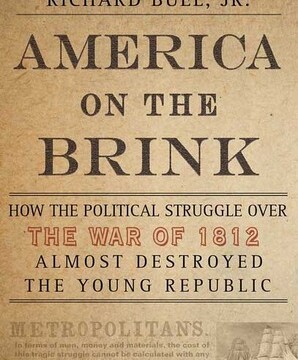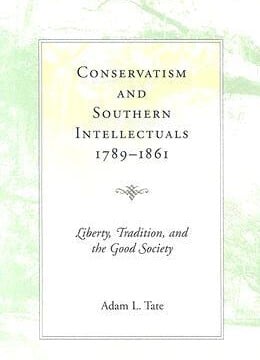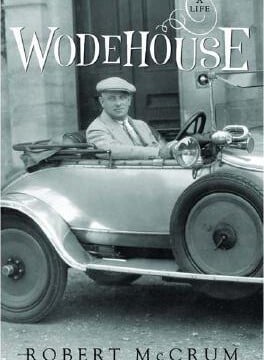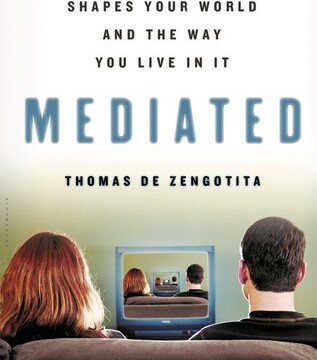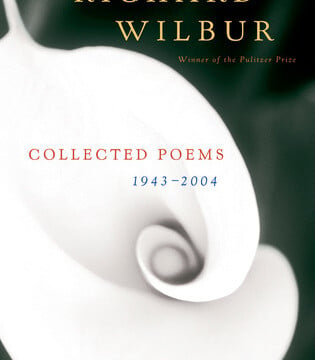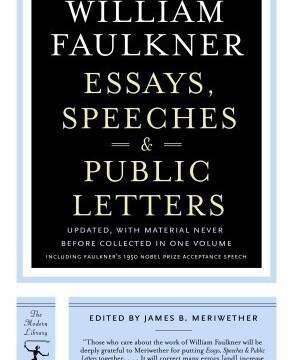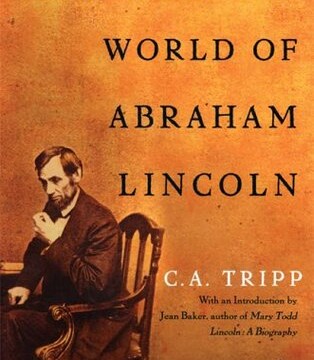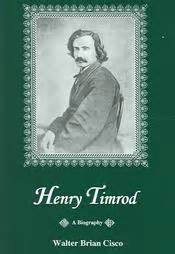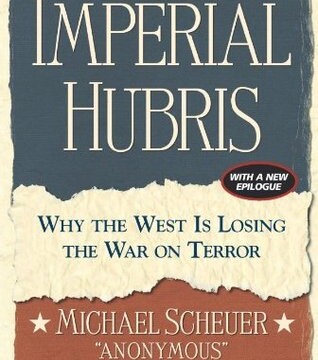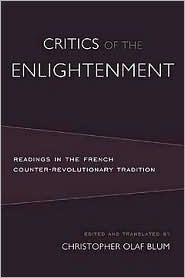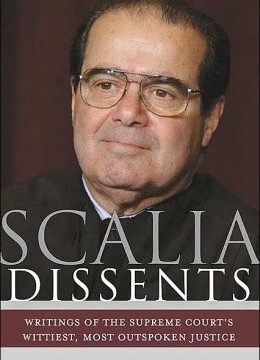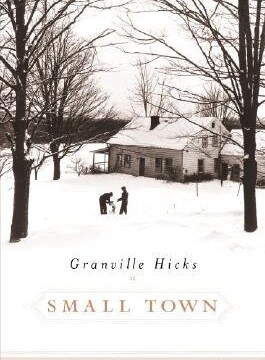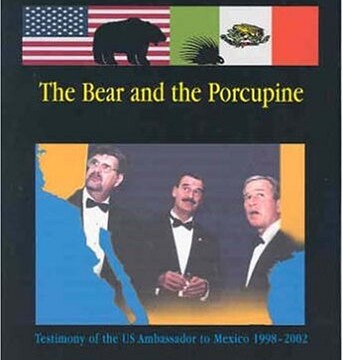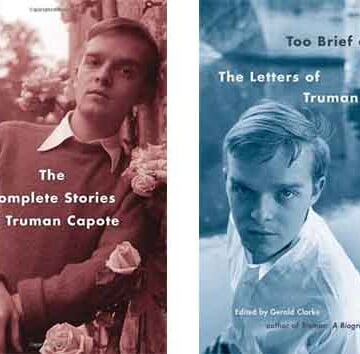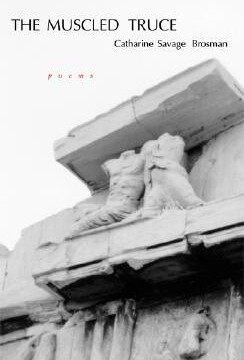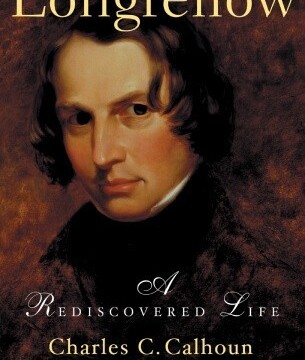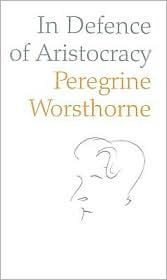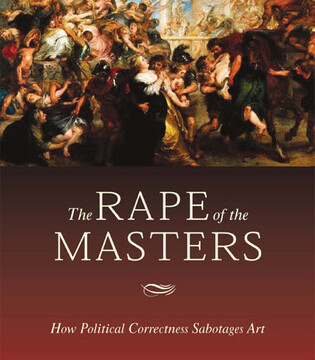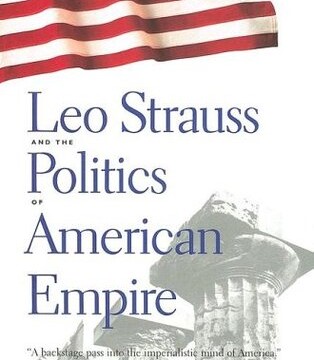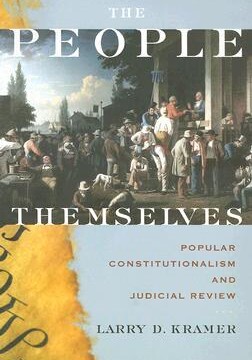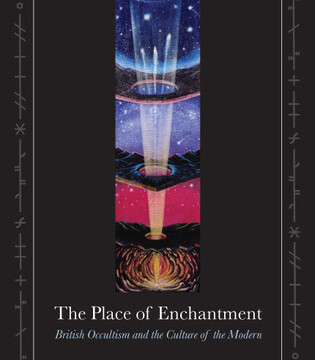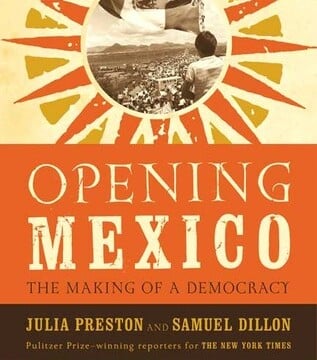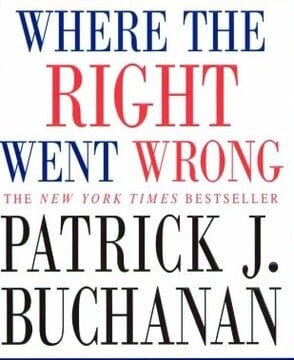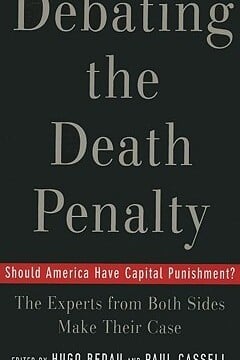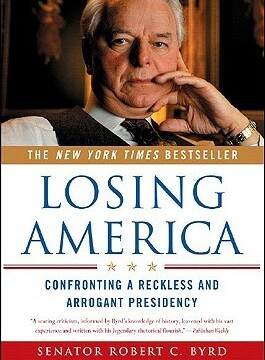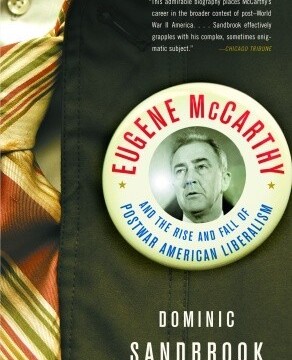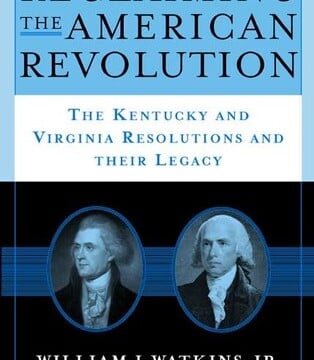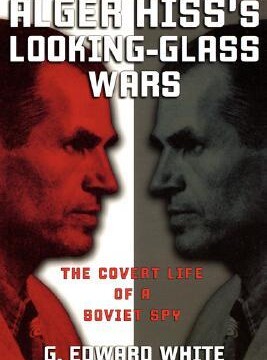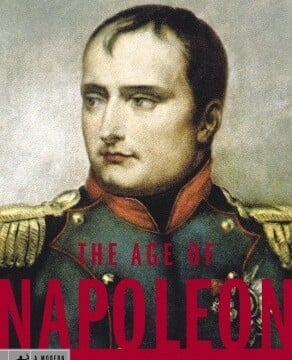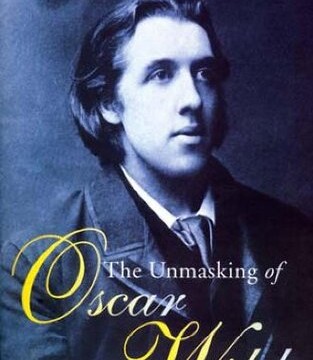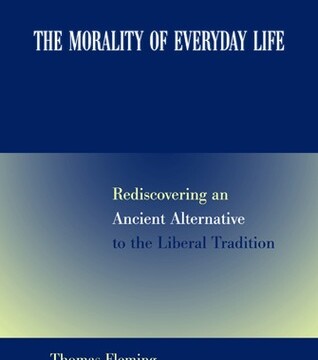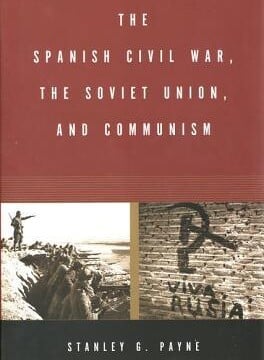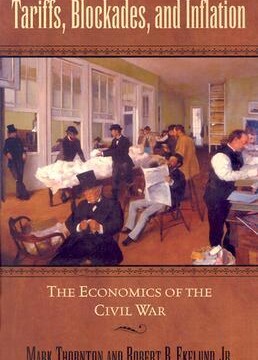If, indeed, the second half of the 20th century was, in our country, “the age of Nixon,” as Robert Dole declared in his eulogy for the man at Yorba Linda in 1994, then Mark Feeney has undertaken to demonstrate just how that age fits into the larger category of the 20th century itself as “the...
Category: Reviews
Antiwar Federalists
The contrast between the importance of the subject of Richard Buel’s new book—New England’s defiance of federal authority during the years of commercial embargo and war with England—and the dullness and conventionality of the narrative reminds us that history is too important to be left to the current occupants of the academy. To enter the...
Felix Culpa
This sprawling and densely written 400-page study of Southern political thought, from Old Republicans John Taylor of Caroline and John Randolph of Roanoke down to Whig social theorists (and humorists) John Glover Baldwin and Johnson Jones Hooper—with wedged-in discussions of such other Southern luminaries as Nathaniel Beverley Tucker, St. George Tucker, William Gilmore Simms, and...
Play It Again, Plum!
“It has been well said of Bertram Wooster that though he may sink onto rustic benches and for a while give the impression of being licked into a custard, the old spirit will come surging back sooner or later.” —P.G. Wodehouse, The Mating Season Robert McCrum demurs from critical comparisons of P.G. Wodehouse with the...
A Dirge Transposed
“A novel,” wrote Stendhal, “is a mirror carried along a road.” In Cyn-thia Shearer’s new book, the road, literally speaking, is that between the invented town of Madagascar, Mississippi, where the action is centered, and Memphis, the other major setting; metaphorically, it is the distance the South has traveled from about 1950 to the early 21st...
The Balkans in Brief
If every man is worthy of a biography (as Johnson suggested), then every people, no matter how small, deserves a decent one-volume history that makes the story of the Bretons or the Armenians intelligible to foreigners. That is the admirable purpose of Blackwell’s “The Peoples of Europe” series, which presents the “usually turbulent history” of...
Surfing the Void
There is a scene in Oliver Stone’s powerful and haunting antiwar film Born on the Fourth of July (1989), in which Ron Kovic’s mother is bending down before the television (this is B.R.—before the remote) and wincing. It is the Fourth of July, 1969, and long-haired antiwar protesters are surging through the capital with angry...
An Oakeshott for Our Time
Paul Franco, a professor of government at Bowdoin College, describes his book on English political theorist Michael Oakeshott (1901-1990) as an “introduction.” That modest claim is fully justified in light of the many volumes on politics, philosophy, aesthetics, education, and religion that Franco’s subject left behind in his productive life of 89 years. Franco observes...
The Dictator of the World
“E avanti a lui, tremava tutta Roma!” —Victorien Sardou, Luigi Illica, and Guiseppe Giacosa, Tosca At the time of its publication in 1984, John Lukacs’s Outgrowing Democracy: A History of the United States in the Twentieth Century was recognized by discerning critics as a highly significant work combining a fresh originality, at once topical and...
Metaphoric Angels
Richard Wilbur’s long and distinguished writing career demonstrates that a poet can go against literary fashions, shunning what passes for received wisdom, and still earn critical praise and become an important figure on the literary landscape. Few of his contemporaries have accomplished even part of what he has managed: to produce work of outstanding quality,...
Citizen Faulkner
If we wish to understand and profit from a great artist, the essential thing to grasp is his vision, as unfolded in his work. Much less important is something that, unlike the God-given vision, he shares with all of us—his opinions. Still, the opinions of a creative writer with the societal breadth and historical depth...
The Lavender Baboon
“O comrade lustrous with silver face in the night.” —Walt Whitman I first heard about “brain freeze” from an amiable fellow who was vending Italian ices. He pointed out that, if the ices were not consumed carefully, the freeze would penetrate the palate into the brain. In fact, I did experience brain freeze that way. But...
An Afternoon Man
Anthony Powell has been variously called “the English Proust” and “a master of wit, paradox and social delineation”; Kingsley Amis said, “I would rather read Mr. Powell than any English novelist now writing.” He was an admired contemporary, friend, or patron of such important 20th-century figures as Graham Greene, Evelyn Waugh, Cyril Connolly, George Orwell,...
The True Fire Within
Henry Timrod died in 1867 at the age of 39 from tuberculosis—his end aggravated and hastened by inadequate food and the rigors of eking out a living amidst the charred ruins of South Carolina’s capital city. The newspaper that had provided the only income for himself, his wife, his child, and his widowed sister’s large...
A Rumor of War
George W. Bush’s man at the CIA, Porter Goss, is now purging the agency, an act prompted by the persistence of certain parties in the CIA in presenting the White House with “reality-based analysis.” Since such analysis presented a road block to war plans, Goss was ordered to rid the agency of “disloyal” employees, meaning...
Counterrevolutionary Light
Both ISI and Christopher Olaf Blum, who edited this anthology, deserve our thanks for making available in English the six 19th-century French conservative thinkers whose writings are herein presented. Although these men—François René de Chateaubriand, Louis de Bonald, Joseph de Maistre, Fredéric Le Play, Émile Keller, and René de La Tour du Pin—do not display...
My Favorite Justice
“Every virtue is included in the idea of justice, and every just man is good.” —Theognis John Paul Stevens is the only U.S. Supreme Court justice to have graduated from the law school where I teach; Steven Breyer was one of my law-school teachers; David Souter may be the most adept at arcane constitutional-law doctrine;...
Hicks’ Town
In 1932, Marxist literary critic Granville Hicks and his wife, Dorothy, bought an eight-room farmhouse in Grafton, New York, a rural hamlet ten miles east of Troy, where Hicks taught English to the young engineers at Rensselaer Polytechnic Institute. For three years, they lived as summer people, aestivating intellectuals, divorced from the community. But when...
Sunset in the Head
Proust wrote, in Time Regained, that “Style is a question not of technique, but of vision.” Technique may be said to inform and undergird the style, but the artistic vision has priority: It is the style. In Charles Edward Eaton’s recent collection, his 17th, comprising new verse (some published previously in Chronicles) and a generous...
Poor Little Victim
An untimely cold finally gave me a chance to watch The Godfather (I and II)—30 years late, but just in time for fitting juxtapositions. I spent my down time sleeping, reading news about Mexico’s ongoing narco-cartel bloodbath, and reviewing former U.S. Amb. Jeffrey Davidow’s book, The Bear and the Porcupine. Most poignant were the similarities...
Beautiful Terror
“Fame is a calamity.” —Turkish Proverb The face is familiar, but not the gray hair. To some few, it may be so from Our Gang shorts from the late 30’s and early 40’s, known by the moniker of Mickey Gubitosi. To others, it is the face of Bobby Blake of “Red Ryder” westerns and Humoresque...
Themselves Alone
“Our sympathy,” said Gibbon with his usual acuity, “is cold to the relation of distant misery.” You do not need to know very much about human nature to agree with the great historiographer that it is often very difficult, or even impossible, to sympathize with the woes of strangers. And if it is difficult to...
Political Romanticism, Utopian Violence
“This book tells a story about the twentieth century, which has in it a lesson for the twenty-first—one that I would think unlikely to be learned, since it is a moral lesson, concerning the role of virtue in human existence, and we know about moral lessons.” Thus begins William Pfaff’s incisive and bracing study of...
Playing Poetry With a Net
In the Introduction to his classic anthology of Fugitive verse, William Pratt writes: “Modern American poetry abounds in individualism, but two groups of poets have affected its course profoundly.” He is referring, of course, to the Imagists and the Fugitives. Nearly a century after the Imagists first gathered in London in 1909, I wonder what...
Room to Pass
Few people read Henry Wadsworth Longfellow (1807-1882) much anymore. Lines from his poems were once on the tips of tongues the world over. Students used to memorize “The Midnight Ride of Paul Revere,” and lines from “Evan-geline” and “Hiawatha.” Longfellow’s once-great literary reputation rivaled that of Tennyson and Dickens, and, after his death, the American...
The Peculiar Path
A Bavarian legal scholar who has been attached to the U.N. Secretariat and to the E.U. Commission in Brussels, Josef Schüsslburner has disagreements with the German Basic Law, enacted in 1949 as an interim constitution for the West German Federal Republic. The author describes this guiding document and the circumstances that helped shape it as...
Celtic Thunder
“The Celts fear neither earthquakes nor the waves.” —Aristotle Nearly six years ago, Chronicles published “Death Before Dishonor,” an article I wrote about the westward march of the American pioneer. Much of the time, I was writing about the Scotch-Irish—or Scots-Irish, if you prefer. These hard-edged folks were in the vanguard of the movement across...
Ghosts on the Stairs
“F–k socialism!” —Evelyn Waugh Octogenarian knight Sir Peregrine Worsthorne is famous in Britain for several things. He was the editor of the Sunday Telegraph and a political columnist for that paper for 30 years. He is married to the jolly Lucinda Lambton, who presents enjoyable, occasional TV programs on heritage-related topics. He wears pink bowties. ...
Victims of Pleasure
I had long since given up on contemporary American fiction, although the Neoformalist movement has reinvigorated my interest in some of today’s American poets. The last American novelist I really admired was Walker Percy. And even he never gave us what I had vaguely been looking for: a dramatization of the lives destroyed—or nearly so—by the...
The Art of Scam
Roger Kimball, who edits the New Criterion and does art criticism for National Review, has set out to achieve two goals in this thin, concise book: pointing out “the depredations practiced by criticism on art” and aiming “to encourage the benevolent civilizing elements that have traditionally been accorded to our encounters with good art.” Despite...
The War Lovers
To save precious space in America’s most important journal, I will refer to the subjects of this book as neocons. To make fine distinctions between academic and activist Straussians, as the author sometimes does, is akin to saying Marx is not to blame for his disciples. Having long admired Prof. Anne Norton for her brilliant...
Who Will Judge the Judges?
Abraham Lincoln, in his 1860 Cooper Union speech, asked, “What is the frame of government under which we live?” The answer must be, he said, the Constitution of the United States. The answer today, as Chronicles’ reviewer of Quirk’s and Bridewell’s Judicial Dictatorship stated in 1995, is a judicial dictatorship imposed by the Supreme Court. ...
The Left-Hand Path
Last May, the New Republic carried an informative article about how contemporary exponents of Cabala, a school of Jewish mysticism dating from the Middle Ages (if not earlier), have shaped the minds (such as they are) of such celebrities as Mick Jagger, Britney Spears, Demi Moore, and Madonna. The Material Girl herself was quoted from...
Mexico Comes of Age
“It doesn’t matter to me if Mexicans make fools of each other; what I will not tolerate is that Mexicans do it.” —Pancho Villa The world remembers the 2000 U.S. presidential election, with its hanging chads, overvotes, undervotes, and esoteric attempts to “discern the intent” of the voter. Irregularities people thought did not and could...
Daffodils for Wordsworth
The name Philip Larkin (1922-1985) is a wonderfully poetic one, conjuring an image of a lover of horses on a carefree adventure. Such, however, is far from the temperament of this 20th-century poet, whose poetry is more suggestive of some horse in a Dickens novel, harnessed to an industrial wheel and moving forever round in...
A Pilgrimage to Jasna Góra
Three Polish nuns, wearing traditional robes and habits, stand in a circle, studying their train schedule. Little sleep and the absence of coffee on the night train from Berlin contribute to my slow reasoning. “Can you direct me to the platform for Cze? stochowa?” I inquire. The eldest nun points to a platform, and then...
Ditching the Cadaver
“Republics exist only on tenure of being agitated.” —Wendell Phillips If anything might have transformed the presidential election of 2004 from a dull ritual of mass democracy into an interesting and perhaps even meaningful act of civic decision, it would have been the presence of Patrick J. Buchanan, whose wit and sharp conservative intelligence enlivened...
Where Lawyers Fear to Tread
This book was occasioned by former Illinois Gov. George Ryan’s blanket commutation of all death sentences imposed in his state to life imprisonment without parole. Philosopher Hugo Bedau and U.S. District Judge Paul Cassell have compiled a collection of outstanding point-counterpoint essays from leading members of the academic, legal, and political communities, discussing the validity...
Blame All Around
Losing America: Confronting a Reckless and Arrogant Presidency by Sen. Robert C. Byrd New York: W.W. Norton & Co.; 270 pp., $23.95 Robert Byrd is the ultimate political survivor. He has served in Congress for more than 50 years and has cast more votes than any other senator in American history. Publicists for the Stupid...
Beyond Politics
Most Americans think of the terms modern and modernity as denoting something positive. A modern society is advanced in science, reason, hygiene, and human goodness. To condemn modernity is to be against progress and all of its material benefits. Even American conservatives are essentially modern in outlook, identifying modernity with material improvement. European conservatives are...
War From a Cabbage Patch
“Gene just isn’t a nice person.” —Bobby Kennedy You know you are not in for a Doris Kearns Goodwin/David McCullough hagiography when a biographer uses as an epigraph a character assessment by the thuggish Marilyn-mauling (Joe) McCarthyite RFK. (Isn’t the three-letter monogram usually a tip-off to a sinister force?) In March 1968, Eugene McCarthy earned...
The Big Bore of Arkansas
“‘Jour printer, by trade; do a little in patent medicines; theatre-actor—tragedy, you know; take a turn at mesmerism and phrenology when there’s a chance; teach singing—geography school for a change; sling a lecture, sometimes—oh, I do lots of things—most anything that comes in handy, so it ain’t work. What’s your lay?’” —The Duke, Huckleberry Finn...
Sacred Texts ’98
As readers of this delightfully passionate work will infer, the U.S. Department of Education is unconstitutional. Nevertheless, before it does the country a great service by abolishing itself, the department ought to issue a mandate requiring every secondary school in the nation to adopt the next edition of Reclaiming the American Revolution as required reading. ...
Red Star at Morning
This book, the work of a professor at the University of Virginia School of Law, is an attempt to fathom the Alger Hiss phenomenon by a man whose father-in-law was among Hiss’s defense lawyers from 1948 to 1950 and who remained for years a quiet believer in the innocence of his client. Hiss died in...
The Order of the Silver Cross
Napoleon rose to power on the destructive wave of the French Revolution. His own synopsis of his remarkable career is succinct—“Corsican by birth, French by adoption and emperor by achievement.” The Age Of Napoleon, by Alistair Horne, seeks to encompass a broader range of the emperor’s achievements in a short volume of 218 pages. Napollion...
Millions for Tribute
That imperial anthem, the hymn of the U.S. Marine Corps, is today somehow an obscure exercise. The halls of Montezuma? The shores of Tripoli? Our gum-popping, Gucci-schlepping youth can no more respond to its referential difficulties than could the Ivy League-credentialed savants of the War Party. What’s more, the pseudopatriots would be shocked to know that...
Dropping the Masks
The 1997 movie Wilde opens with a shot of Oscar Wilde (played by Stephen Fry) being lowered by bucket into a Colorado silver mine, where he recites his poetry and chats with shirtless, sweaty miners, who are obviously thrilled at a visit from such a renowned visitor. I thought it was at least half Hollywood...
Thomas Fleming and Mother Teresa: Undoubted Motives in the Morality of Everyday Life
“Name one.” —Anonymous Too bad that, since 1966, they are no longer adding titles to the Index of Prohibited Books. My more than ten years as diocesan censor librorum—was it this past distinction that gained me the happy task of writing this review?—would lead me to grant Thomas Fleming’s The Morality of Everyday Life: Rediscovering...
The Unlovely Republic
The most respected historian specializing in the Spanish Civil War and the history of fascism, Stanley G. Payne has never hesitated to challenge received opinions in his field. Like his mentor and friend Burnett Bolloten, Payne has been properly critical of the Spanish Republic, the regime against which the Spanish military and much of the...
The First New Deal
A calm image of businessmen and clerks engaged in the buying and selling of cotton on the New Orleans Cotton Exchange is not what you expect to find on the dust jackets of books about the Civil War. The Edgar Degas painting that graces the cover of Tariffs, Blockades, and Inflation, however, tells the reader that...
